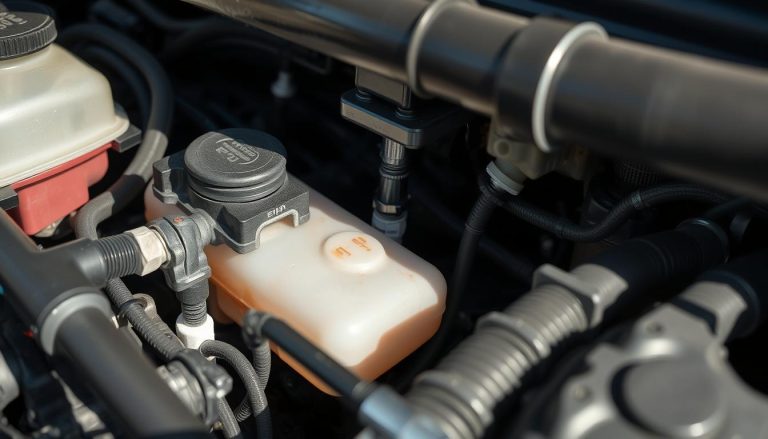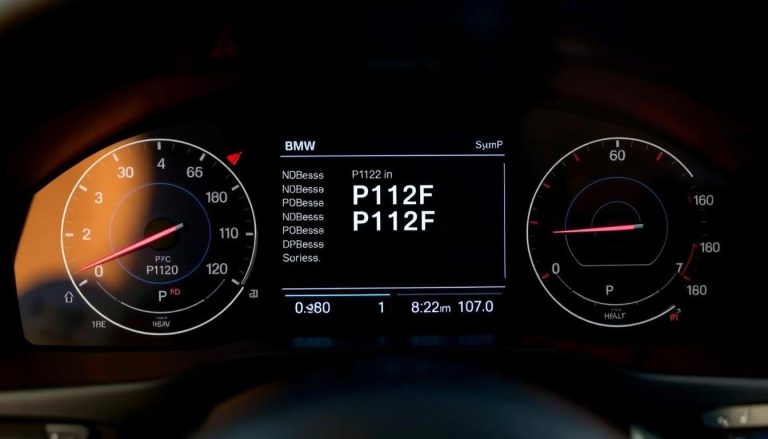If you’ve recently encountered the P0709 code while driving, you might be scratching your head, wondering what it means and how it affects your vehicle. This specific trouble code points to a problem with the transmission range sensor circuit—essentially signaling that something is amiss in how your car recognizes its gear positions.
Ignoring this issue could lead to more significant problems down the road, so it’s essential to understand everything about this code. From symptoms and causes to diagnostic steps and repair solutions, we’ve got the information you need right here.
What does the P0709 code mean?
The P0709 code is a diagnostic trouble code (DTC) that indicates an issue with the transmission range sensor A circuit. This component plays a crucial role in determining the position of your vehicle’s transmission, signaling to the engine control module (ECM) which gear is currently engaged.
When this code pops up, it suggests that there’s an intermittent problem affecting how signals are sent between the sensor and the ECM. The transmission range sensor ensures smooth shifting by providing accurate data about whether your car is in park, reverse, or drive.
An intermittent signal can result from wiring problems, faulty sensors, or poor connections. Understanding this code helps prioritize repairs before they escalate into more serious issues that could impact drivability. Addressing a P0709 promptly can save you both time and money later on.
What parts can be affected by P0709 code ?
The P0709 code primarily revolves around the transmission range sensor. This component plays a crucial role in ensuring your vehicle knows which gear it’s in.
If this sensor malfunctions, several parts may also be impacted. The transmission control module (TCM) relies on accurate data from the sensor to manage shifting effectively. An issue here can lead to erratic shifting behavior or even prevent the car from going into gear.
Wiring and connectors associated with the transmission range sensor can suffer wear and tear as well. Corroded connections might disrupt signals sent to the TCM, causing confusion about gear selection.
Additionally, other components like solenoids and valves within the transmission could react poorly if they aren’t receiving correct information. This situation may escalate further if left unaddressed, potentially leading to more extensive damage over time.
What are the possible causes of a P0709 code?
A P0709 code can stem from several underlying issues :
- One common cause is a faulty transmission range sensor, which plays a crucial role in relaying the correct gear position to the vehicle’s computer.
- Wiring problems are another potential culprit. Frayed or damaged wires can disrupt signals, leading to intermittent readings that trigger this code. Corroded connectors may also lead to communication failures between components.
- Additionally, low transmission fluid levels might be at fault. Insufficient fluid can affect how the transmission operates and impact sensor performance.
- A malfunctioning engine control module (ECM) could contribute to this issue. If the ECM misinterprets data due to software glitches or internal damage, it may set off a P0709 code unexpectedly. Understanding these causes helps you narrow down diagnostics effectively.
What are the common symptoms of a P0709 code?
When your vehicle encounters a P0709 code, several symptoms may arise. One of the most noticeable signs is difficulty shifting gears. You might experience harsh or erratic shifts, which can make driving uncomfortable.
Another common symptom is the illumination of the check engine light on your dashboard. This warning signals that something isn’t quite right and requires attention.
You may also notice issues with acceleration. If the car feels sluggish or unresponsive when you press down on the gas pedal, it could be related to this code.
In some cases, drivers report unusual noises from the transmission area. These sounds can include grinding or clunking sensations during gear changes.
If you’re experiencing unexpected stalling while driving, it’s essential to investigate further as it could indicate problems linked to a P0709 code.
What are the diagnostic steps for a P0709 code?
When diagnosing a P0709 code, the first step is to use an OBD-II scanner. This tool will help confirm the presence of the code and check for any additional trouble codes that may be stored.
Next, visually inspect the transmission range sensor and its wiring. Look for any signs of damage or corrosion that could affect connectivity.
Afterward, test the voltage at the sensor using a multimeter. This will help determine if it’s receiving power properly.
Additionally, evaluate related components such as fuses and connectors. Ensure everything is secure and functioning correctly.
If necessary, perform a continuity test on wires leading to the sensor to spot potential breaks in communication.
Take your vehicle for a test drive under various conditions to see if symptoms reappear after resetting the code.
How serious Is the P0709 Code? Can I continue driving with the P0709 code?
The P0709 code indicates a problem with the transmission range sensor circuit. This issue can disrupt the vehicle’s ability to determine its transmission position accurately.
Driving with this code active is risky. It may lead to unpredictable shifting behavior, which could impair control over the vehicle. Sudden shifts or failure to shift can pose safety hazards, especially in traffic.
While some drivers might feel tempted to continue driving, it’s not advisable. Ignoring this warning could exacerbate existing problems in your transmission system and lead to costly repairs down the line.
If you notice related symptoms like erratic gear changes or dashboard alerts, addressing them promptly is essential for both safety and performance. Taking action sooner rather than later will help prevent further complications.
What are the repair solutions for a P0709 – Transmission Range Sensor A Circuit Intermittent ?
Repairing a P0709 code often starts with addressing the transmission range sensor itself. If it’s faulty, replacing this component is usually the first step.
Next, inspect wiring and connectors associated with the sensor. A loose or damaged wire can lead to intermittent signals, triggering the P0709 code. Repairing or replacing these connections might resolve the issue without further complications.
Additionally, checking for software updates in your vehicle’s transmission control module can be beneficial. Sometimes manufacturers release patches to improve performance and fix known glitches.
Regular maintenance cannot be overlooked either. Keeping your vehicle in good condition reduces wear on components related to transmission systems, thereby preventing future codes from surfacing.
If you have persistent issues even after repairs, seeking professional diagnostics may reveal deeper underlying problems that need addressing.
What other codes may be related to P0709?
When dealing with the P0709 code, several related trouble codes might surface. These codes often indicate issues in the transmission or related systems.
Codes such as P0708 (Transmission Range Sensor A Circuit High) and P0710 (Transmission Fluid Temperature Sensor Circuit Range/Performance Problem) are frequently associated. They suggest that your vehicle’s transmission range sensor is not functioning correctly.
Additionally, you may encounter other performance-related codes like P0720 (Output Speed Sensor Circuit Malfunction). This can point to further complications within your vehicle’s drivetrain.
Some diagnostic scenarios may even reveal error codes linked to broader system failures. Codes like U0101 (Lost Communication with Transmission Control Module) could arise if there are communication problems between components.
Understanding these connections helps in identifying the root cause of any underlying issues more effectively.
How much does it cost to diagnose and repair a P0709 code?
The cost to diagnose a P0709 code can vary significantly. Expect to spend anywhere from $100 to $150 at most repair shops. This typically includes the diagnostic fee for scanning and inspecting your vehicle.
If repairs are necessary, prices fluctuate based on the specific issue. For instance, replacing a faulty transmission range sensor might set you back between $200 and $500, depending on labor rates and part costs in your area.
More complex issues could lead to higher expenses. If wiring problems or other electrical components are involved, you may face additional charges that could push total repair costs into the thousands.
Keep in mind that getting multiple quotes can help you find a fair price. It’s also wise to choose reputable mechanics who specialize in transmission work for accurate diagnostics and repairs tailored to resolve the P0709 code effectively.
How long does it take to diagnose and repair code P0709?
The time it takes to diagnose and repair the P0709 code can vary widely. Most mechanics will first need to run a series of diagnostic tests, which typically take about an hour or two.
Once the initial assessment is complete, the technician may discover that repairs are simpler than expected. For instance, it might just require replacing a faulty sensor or fixing wiring issues.
However, if more extensive work is needed—like transmission adjustments—the timeframe could extend significantly. This may involve days rather than hours due to parts availability and complexity.
Labor costs can also affect how long you spend at the shop. It’s important to communicate with your mechanic for clarity on both diagnostics and estimated repair times. Staying informed helps manage expectations throughout the process.
Is the P0709 code specific to certain car makes or models?
The P0709 code is not limited to specific makes or models. It can occur in a variety of vehicles, including both domestic and foreign brands.
Manufacturers such as Ford, Chevrolet, Honda, and Toyota may all experience this issue at some point. The underlying problem typically revolves around the transmission range sensor’s function rather than brand-specific components.
While many cars share similar designs regarding their transmission systems, variations in sensors and wiring harnesses could influence the frequency of P0709 codes across different models. This means that while one vehicle might frequently show this trouble code, another model from a different manufacturer may rarely encounter it.
It’s important for car owners to be aware of their particular vehicle’s susceptibility to transmission-related issues but knowing the universal nature of the P0709 code is also valuable information when troubleshooting problems.
How can I avoid a P0709 code?
To prevent encountering a P0709 code, regular maintenance is essential. Keep up with your vehicle’s service schedule. This includes fluid changes, especially transmission fluid.
Inspect the wiring and connectors associated with the transmission range sensor frequently. Look for signs of wear or damage that could lead to intermittent issues.
Avoid aggressive driving habits that can put extra stress on your transmission system. Smooth acceleration and braking help maintain longevity and performance.
Using quality parts during repairs or replacements can also make a difference. Cheap substitutes may not meet specifications and could contribute to problems down the line.
If you notice any unusual behavior in your vehicle’s shifting patterns, address it promptly. Ignoring early symptoms might lead to more severe issues later on.
What happens if you ignore a P0709 code?
Ignoring a P0709 code can lead to several complications that may jeopardize your vehicle’s performance and safety. When this code appears, it indicates an issue with the transmission range sensor circuit. If left unaddressed, this problem can escalate into more serious transmission-related issues.
A malfunctioning transmission range sensor means your car could experience erratic shifting patterns or even fail to shift at all. This not only affects drivability but also increases wear and tear on other components of the transmission system. Furthermore, driving with an unresolved P0709 code might cause you to lose power while driving, which poses a significant risk on busy roads or highways.
Additionally, ignoring warning codes like P0709 often leads to costly repairs down the line as minor issues transform into major failures. It’s wise to address any check engine light indicator promptly rather than waiting for symptoms to worsen.
Taking immediate action on a P0709 code is crucial for maintaining both vehicle functionality and safety. Regular maintenance checks can help keep such problems in check before they escalate further.


